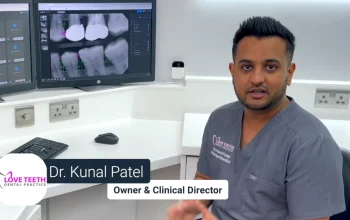While we think of dental checkups as a way to prevent tooth decay, gum disease, and other oral health problems, they can also help identify a number of major health concerns. For example, a dentist can spot signs of swollen lymph nodes that could indicate cancer or other serious conditions.
1. Prevent Gum Disease
Gum disease causes tooth decay and other oral health problems. It can lead to the destruction of gum tissue and bone, and it has been linked to other health issues, including heart disease, diabetes, and stroke.
It is possible to prevent gum disease through good oral hygiene and regular dental care. Tartar and plaque can be removed during routine cleanings, which help to keep teeth healthy and minimize the risk of gum disease.
Dentists can also detect early signs of gum disease, such as receding gums and deep gum pockets. This helps to prevent gum disease and avoid expensive treatments like root canals.
2. Prevent Tooth Decay
A major benefit of dental checkups is that you can catch problems before they get too serious. For example, if a tooth is decayed or rotten, your dentist will be able to prevent it from causing you pain or even needing to be pulled out.
Regular dental checkups can also detect problems such as abscesses, cuts and other issues that could cause infections. These infections can spread quickly and lead to a variety of other health problems, including sepsis. So, if you’re experiencing mouth or gum pain, make sure to contact your dentist as soon as possible.
3. Prevent Oral Cancer
A dental checkup includes an examination and a cleaning. The exam is important because it helps prevent oral diseases and catch them early. The dentist can also detect any underlying issues, like bone loss in the jaw or impacted teeth.
During the dental cleaning, the hygienist will clean your teeth using special tools to remove plaque and tartar. This is necessary because brushing and flossing cannot completely remove plaque.
A dental checkup also checks for oral cancer, which is often fatal if it goes undiagnosed. This is done by examining the gums, inside of the cheeks and lips, the roof of the mouth, and the back of the throat.
4. Prevent Sleep Apnea
Sleep apnea is a serious medical condition that can lead to severe health issues, including heart disease and diabetes. During regular dental visits, dentists can screen patients for sleep apnea and provide treatment to help prevent this disorder.
Many people think of snoring as the primary sign of sleep apnea, but the condition also causes other symptoms, like jaw pain and headaches from teeth grinding or jaw clenching during sleep. Dentists can treat these discomforts with a specialized oral appliance that holds the jaw forward to improve breathing and prevent sleep apnea.
5. Prevent Heart Disease
The mouth is a window into the health of your body. Visiting the dentist for routine cleanings allows them to catch problems in their earliest stages, which can save you time, pain, and money in the long run.
They are also looking for warning signs of underlying health issues like diabetes and oral cancer. Many times the early onset of these serious conditions are overlooked, which increases your risk of a fatal heart attack or stroke.
Visiting the dentist can also help prevent other health issues like poor diet, teeth grinding (bruxism), smoking or vaping, and other unhealthy habits that may negatively impact your oral and overall health. Studies have shown that people who visit the dentist regularly experience better health outcomes including significant savings in healthcare costs.
6. Prevent Diabetes
Diabetes is linked to gum disease and poor dental health. Regular dental appointments can help prevent diabetes.
Dentists are trained to spot early warning signs for oral cancer. If these symptoms are spotted in the early stages, it increases the chances of successfully treating the cancer and preventing it from spreading.
Dentists can also spot diabetes related issues in the mouth, such as a dry mouth and difficulty tasting food. These problems can lead to serious consequences for a patient’s overall health, including reduced nutrition and an increased risk of heart disease.
7. Prevent Other Health Issues
Routine dental checkups can help to prevent serious health issues, such as oral cancer, by detecting early signs of the disease and providing treatment as needed. Moreover, these visits help to keep teeth healthy and strong, which can improve overall health and strengthen the immune system.
Additionally, a dentist will examine the head and neck areas for early warning signs of other health problems. These include diabetes, heart disease, and immune system disorders. Postponing dental appointments means that oral problems will worsen, becoming more invasive and expensive to treat.




